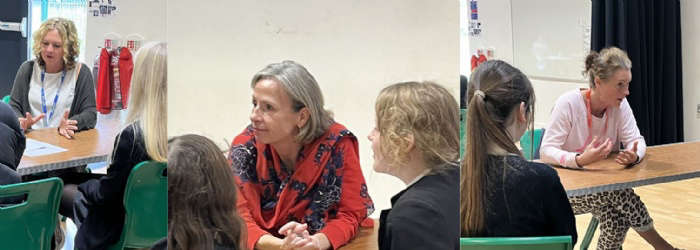
Experts have developed the equity scorecard to assess whether schools are taking their fair share of pupils from under-resourced backgrounds. The guide also offers examples of good practice to enable all pupils to progress inside and outside the classroom.
Teachers are trialling a new innovative tool that shines a spotlight on how well they are serving pupils facing extra barriers to their learning.
Experts have developed the equity scorecard to assess whether schools are taking their fair share of pupils from under-resourced backgrounds. Their guide also offers examples of good practice to enable all pupils to progress inside and outside the classroom.
Many schools in the South West have already signed up to pilot the self-evaluation tool – and the aim is it will become a universal tool helping schools across the region and the country to create a more equitable education system.
“To have any chance of levelling the playing field in education, we need to shift from a deficit mindset to an equity mindset,” said Lee Elliot Major, Professor of Social Mobility at the University of Exeter. “That means dismantling the cultural and material barriers to learning inside and outside the classroom, celebrating all children’s talents, and forging mutually respectful relationships with the parents and communities we serve.
“Our equity scorecard offers practical help for teachers in their mission to help every pupil thrive, regardless of their background or aspirations.”
The scorecard evaluates schools across three core areas: disadvantaged outcomes, disadvantaged inclusion and community engagement. It uses three forms of evidence: survey data of staff, pupils and parents/carers; self-assessed school-improvement checklists; and official school data. Different areas are judged as green – signalling improvement, yellow – indicating maintenance of standards, and red – suggesting decline. The same traffic light system is also used to compare schools to regional and national averages.
Matthew Shanks, Chief Executive Officer of Education South West, said: “The equity scorecard provides a fair and comprehensive approach to ensure that all children are accounted for in our schools.
“We are piloting this because it is rooted in the belief that every child should have the opportunity to succeed. We want to be part of the solution, and hope that this tool will drive equitable educational outcomes for all students in our trust.”
The work, led by Beth Brooks, Anne-Marie Sim and Lee Elliot Major, from the University of Exeter, is part of the South-West Social Mobility Commission’s programme of work.
Ms Brooks said: “It’s so exciting that so many schools have already signed up to trial the scorecard. It reveals a widespread belief among teachers that we can create a more equitable system that nurtures every child.”
Information gathered in the scorecard will include school days missed, data on “off-rolling”, suspensions and exclusions, English and maths GCSE pass rates and parents’ evening attendance. There is also feedback from surveys of pupils, parents and carers and school staff.
Checklist of practical ‘good bets’ range from acknowledging unconscious biases in the classroom to developing a language, pedagogy and curriculum of equity, to home visits to forging mutually respectful relationships with parents.
Professor Elliot Major said: “The current school inspection regime has in many ways created the worst of all worlds for teachers. On the one hand, they are held responsible for addressing all of society’s ills outside the school gates; on the other, there is little recognition of the extra barriers faced by the pupils from under-resourced backgrounds that they serve.
“It’s inspiring to see such a groundswell of school leaders and teachers who want to sign up to our equity scorecard to build inclusive classrooms in which all children can flourish.”

 RAF Exeter Town Show: A Weekend of Discovery and Excitement
RAF Exeter Town Show: A Weekend of Discovery and Excitement
 Police are seeking the public’s help to find a wanted Exeter man
Police are seeking the public’s help to find a wanted Exeter man
 East Devon environment budget cut by £50k as demands get tougher
East Devon environment budget cut by £50k as demands get tougher
 Online petition system set to launch in East Devon
Online petition system set to launch in East Devon
 New Red Coat tours revealed as part of summer programme
New Red Coat tours revealed as part of summer programme
 Devon Loves Dogs is best practice
Devon Loves Dogs is best practice
 Food bank retained amid former boys’ school transformation into homes
Food bank retained amid former boys’ school transformation into homes
 Local Role Models Empower Sidmouth College Girls for Career Success
Local Role Models Empower Sidmouth College Girls for Career Success










